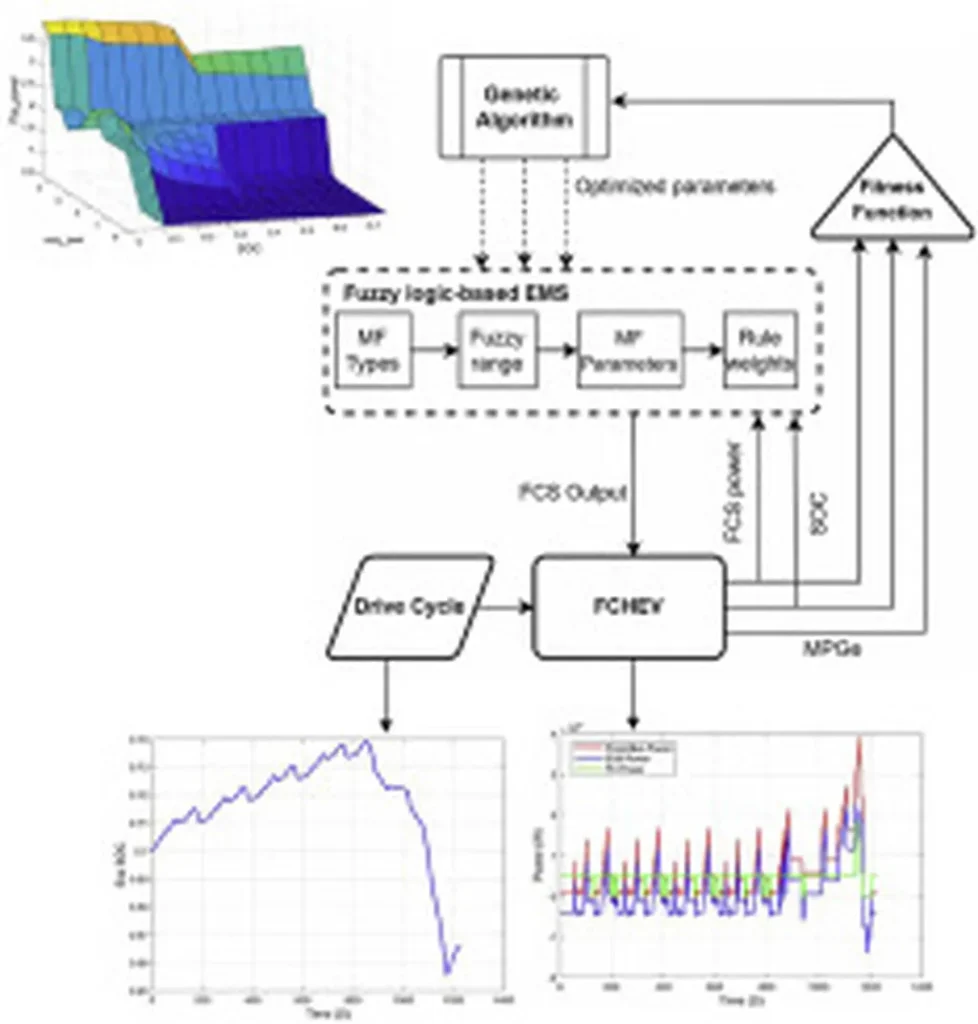In a world grappling with the dual challenges of increasing energy demand and the scarcity of conventional energy sources, researchers are turning to innovative hybrid systems to ensure a stable and continuous power supply. A recent study published in the *Journal of Engineering and Energy* explores a novel hybrid power system that combines wind power and fuel cell technology, controlled by a fuzzy logic system. This research, led by Khairul Gunawan from Universitas Malikussaleh, could pave the way for more reliable and efficient energy solutions.
The study simulates a hybrid system that integrates a wind power system with a fuel cell, electrolyzer, storage tube, and hydrogen valve, all controlled by a switching system. The goal is to optimize power generation and ensure that energy demands are met consistently. “The hybrid system works by supplying excess power from the wind system to the electrolyzer, converting it into hydrogen when production exceeds demand,” explains Gunawan. “Conversely, if the wind power system falls short, the fuel cell steps in to compensate, maintaining system stability.”
This approach not only enhances the reliability of the power supply but also addresses the intermittent nature of wind energy. The use of a fuzzy logic controller further refines the system’s ability to manage transitions between wind power and fuel cell, ensuring minimal disruption. “The system demonstrates a high level of stability, with only a 12.5% occurrence of transient conditions between the two energy sources,” notes Gunawan. This stability is crucial for commercial applications, where consistent power supply is paramount.
The implications for the energy sector are significant. As the world shifts towards renewable energy sources, hybrid systems like the one proposed by Gunawan and his team could play a pivotal role in bridging the gap between supply and demand. By integrating wind power with fuel cells, the system offers a more resilient and flexible energy solution, capable of adapting to varying conditions.
Moreover, the use of fuzzy logic controllers adds a layer of intelligence to the system, allowing for more precise and responsive control. This could lead to broader applications in smart grid technologies, where adaptive control systems are essential for managing complex energy networks.
As the energy sector continues to evolve, research like this highlights the potential of hybrid systems to revolutionize power generation. By combining the strengths of different energy sources and leveraging advanced control technologies, we can create more sustainable and reliable energy solutions. “This research is just the beginning,” says Gunawan. “The future holds even greater possibilities for hybrid power systems, and we are excited to explore them further.”
Published in the *Journal of Engineering and Energy*, this study offers a glimpse into the future of energy generation, where innovation and technology converge to meet the world’s growing energy needs. As the energy sector continues to evolve, such advancements will be crucial in shaping a more sustainable and resilient energy landscape.

